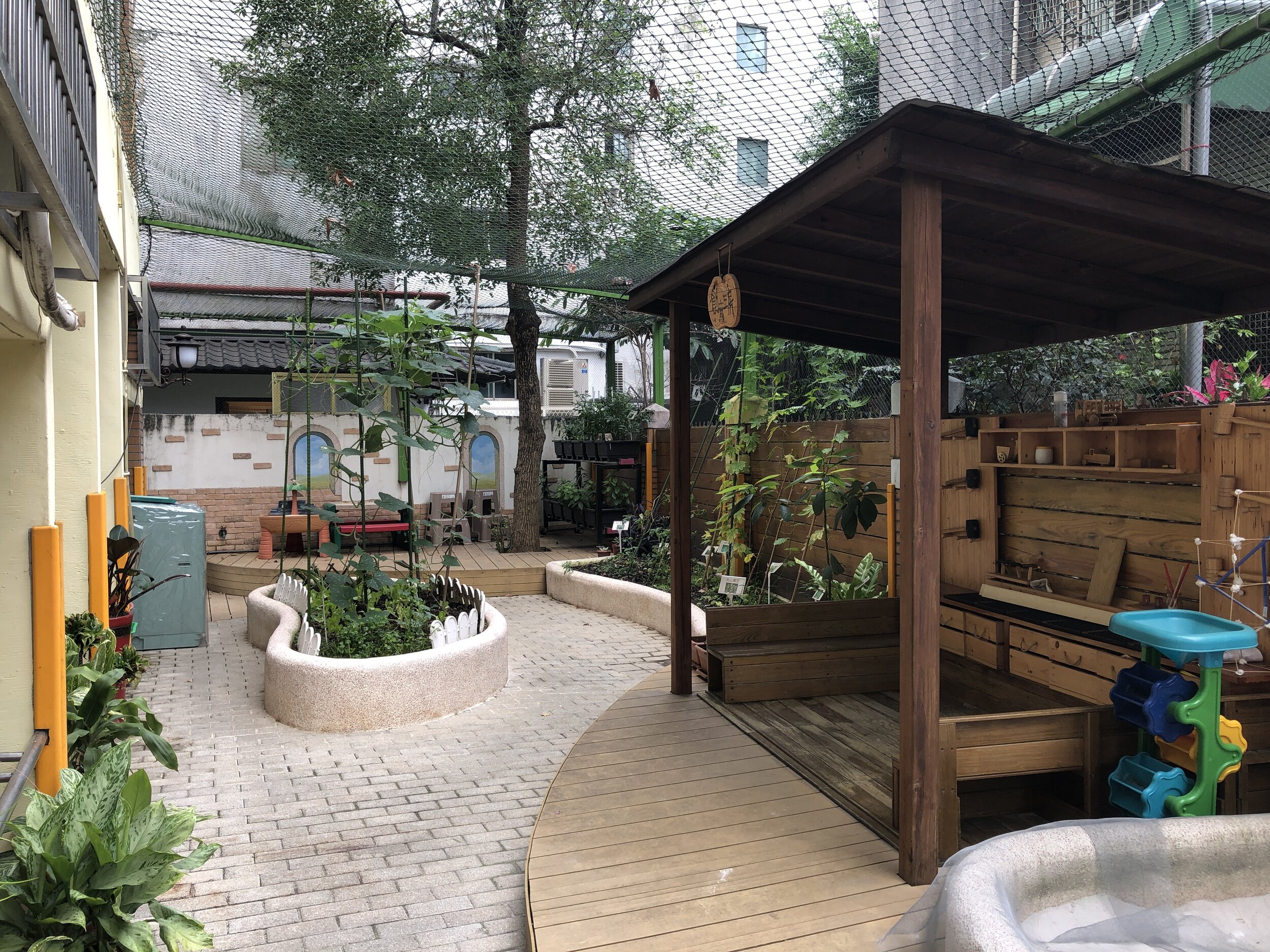What comes to mind when you think of Wanhua? A historic neighborhood? Longshan Temple? Snake Alley?What do you imagine a Montessori school would be like? Expensive? Lots of teaching materials? Different from traditional schools?
A new type of education is flourishing in the old neighborhood of Wanhua. Children, parents, and the local community are all benefiting from Montessori philosophy in ways that are gradually bringing change.
From failing to star preschool
Back in 2012, after integrating its kindergarten and nursery school, the Taipei Municipal Wanhua Preschool was left with unfilled student vacancies. Things began to change after Hui-Ling Lu was selected by the Taipei Department of Education to be the new director. The once unpopular preschool now has hundreds of families on the waiting list. The preschool’s transformation results from integrating the Montessori Method into the existing curriculum. The key to the school’s success was Director Lu’s commitment to create a prepared environment for the children and to prepare teachers during the change.
Upon walking into Wanhua Preschool, the bright, spacious rooms feel like a private preschool. The children are all busy doing something: some squeezing lemon juice to share with others, another concentrating on the Addition Snake Game, while a group of children are working on a geography jigsaw puzzle. The teachers are not shouting “Quiet!” or “Sit down!” Instead, there is a serene learning atmosphere. Here, learning to live and learning knowledge are one in the same, as order, logic, and life skills are all integrated.
Education absolutely changes children
Director Lu of the preschool has gotten used to visitors being astonished and moved by what they see. “Because of where we are, half of the children in our preschool come from underprivileged families. As we transitioned to the Montessori model in 2015, our biggest challenge was to help these children enjoy learning and to help children with special needs find their place in the educational system.”
In fact, many of these “special needs” children simply lacked cultural stimulus. To help them, Director Lu applied for assistance from special education professionals, who’d come in to support these children and to assist their smooth transition to formal elementary school education. “This situation is just like when Maria Montessori set up the first Children’s House in Rome,” remarked Director Lu. Montessori believed that education can change children. Education provides children from disadvantaged families with more cultural stimulus, while other children have the opportunity to learn even more. Education is not about requiring all children to reach the same standard.
Putting children at the center of learning
At the Municipal Wanhua Preschool, teachers are always attentive, observing children as they progress through different stages. For example, once the teachers overheard children talking about how eggs hatch into chicks. The next day, without saying anything, the teachers placed five eggs in the classroom. The children who found the eggs were delighted and started to talk about how to hatch them, coming up with lots of ideas, including lamps, thermometers, and chicken nests. In the end, three chicks hatched.
But what next? The teachers followed the children’s curiosity and responded by asking all sorts of questions: How should the chicks be raised? Where should they live? What do they eat? What if there are rats? The children wrecked their brains and tried to find solutions together. They even used Lego bricks to build a model chicken coop and asked the Director to find a carpenter to build it. Now, the third generation of chicks have been born.
“I think what’s great about Montessori education is that it respects children and doesn’t have standardized teaching materials,” explained Director Lu. “Teachers provide education that suits each child’s individual needs. But it’s very important to have teachers who are prepared, because they have to observe, wait, and think about when to give, what to give, and how to prepare children for what’s next.”
Teachers impact children’s lives
At first, the teachers were uncertain about integrating the Montessori Method into the curriculum, but Director Lu encouraged them to try. “The teachers love the children as much as I do,” illustrated Director Lu. “At the end of the day, we all just want to do more for them.”
Director Lu continued to motivate the teachers by assuring, “You can impact the children’s lives.” Because of these teachers, who are not afraid to try new things and willing to spend their own holidays doing 360 hours of local Montessori teachers’ training, many underprivileged children now have the opportunity to benefit from this change. What’s more, the affect upon the children has also led to changes in their families. “Our child learned to clear the table and even reminds us to do it now!” exclaimed a parent with a smile.
“The Montessori Method is actually an education model, not a technique. Children are born with the innate disposition to self-learn, and they can expand their intelligence through learning, as long as we’re willing to offer them the opportunity,” according to Director Lu.
The success story of the Wanhua Preschool exemplifies the change Montessori education can bring, regardless of families’ socio-economic status. A new kind of education continue to flourish in an old neighborhood.


